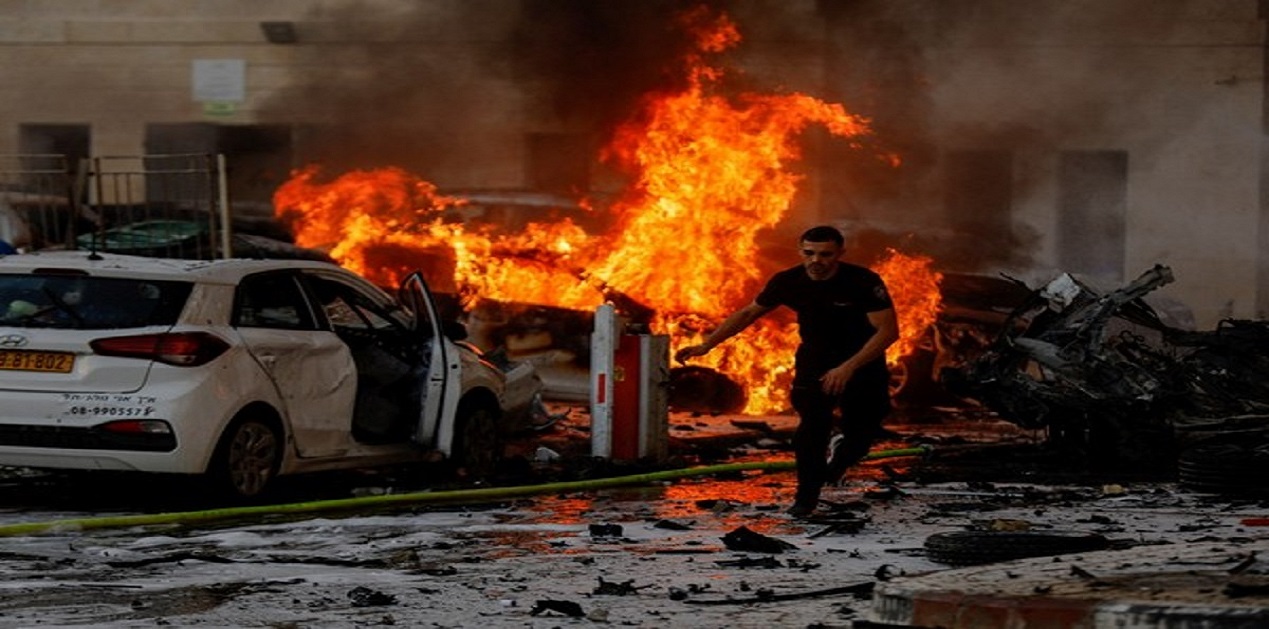The Nepalese nationals suffered unprecedented casualties during the recent surprise attack by the Islamist Hamas group of Palestine on the soil of Israel on October 7. Never before had there been so many casualties of the Nepalese on foreign soil except in 2014 when 14 Nepalese were killed in a suicide attack by the Taliban in Afghanistan. This time 17 Nepali students who were living at Kibbutz Alumim in southern Israel near the Gaza Strip, fell victim to attacks by the Hamas. Of those 17 students, 10 students were killed, four were injured, 1 remains missing and two are unharmed. Altogether 265 Nepalese students from the different universities of Nepal had gone to Israel for further study under the “Learn and Earn’ programme of the Israeli government.
Along with the Nepalese, other foreign nationals were also killed during the Hamas attack on Israel. Of those foreign nationals killed in Israel, 27 nationals are from the United States followed by18 nationals from Thailand, 17 from Britain, 10 each from Nepal and France, and 7 from Argentina. Besides, several people from the USA and other countries were also made hostages in Gaza by the Hamas.
About 4,500 Nepalese, mostly women, are working as caregivers in Israel who serve the elderly people. Those of the Nepalese who live in Israel are living in horrifying situations and are virtually in panic. Suraj Bhandari, a Nepali student living in Israel in his heartfelt letter to the Prime Minister Pushpa Kamal Dahal wrote, “We had seen birds flying in the sky; today we are witnessing fighter planes and missiles in the sky. We who would enjoy the bursting of firecrackers in Tihar (Diwali) today find ourselves confronted with the terrifying sounds of gunfire and explosions… At this critical juncture…. we do not want to lose our lives in the war…(We) want to return to our country.”
During the terrorist attack on Israel on October 7, 1,300 people were killed. Families of 97 Israelis, including children and womenwere abducted from their homes and music festivals and were taken to the Gaza Strip as captives. Later, in Israel’s retaliatory actions, 1,800 people were killed in Gaza. Situation in the Gaza is turning worse after the Israeli army ordered 1.1 million people in northern Gaza to evacuate their homes. Hundreds of thousands of people are forced to flee from their homes to save their lives.
Of around 100 countries which reacted to the attack on Israel, as many as 44 countries, including Nepal strongly condemned the terrorist attack and the loss of human lives, injuries and destruction of property in Israel. Twenty countries opined that Israel has every right to defend its territory. Some countries wanted de-escalation of conflict in the war zone. On the other hand, such countries as Qatar, Saudi Arabia, Kuwait, Syria and Iraq blamed Israel for the attacks.
Expressing its solidarity with Israel, the Ministry of Foreign Affairs (MoFA) of Nepal in its press release unequivocally stated, “In this critical hour, we convey our solidarity with the Government of Israel.” It also expressed heartfelt condolences and sympathies with the people of this country, particularly the victims and families of those affected by the terrorist attack.
Nepal is the first country in South Asia to have recognized Israel as a nation. It established diplomatic relations with Israel as far back as June 1, 1960, when the Nepali Congress leader B.P. Koirala was the Prime Minister of Nepal. That was the period when Israel was struggling to stand as a nation. Ever since then, the two countries have been maintaining productive relations in several fields, including in agriculture, tourism and banking sectors.
Ram Chandra Paudel, President of Nepal, expressed his grief over the killings of the Nepalese students in the Hamas attack. He also asked the government to ensure medical care to those students who were injured in the attack. Sher Bahadur Deuba, President of Nepali Congress urged the government to take immediate measures to rescue and repatriate the Nepalis living in horror in Israel. Similarly, Deputy Prime Minister and Home Minister Narayan Kaji Shrestha expressed serious concern about the fate of the Nepalese killed and injured in Israel.
Nepal observed Tuesday, October 10 as “National Day of Mourning.” A decision has been made by the government of Nepal to provide one million rupees to each bereaved family who lost their kith and kin in a terrorist attack in Israel. Other provincial governments also declared to provide certain relief to the victim families in their provinces.
To ensure the safety of its people living in Israel, Nepal formed a mechanism under Narayan Prakash Saud, the Foreign Minister and entrusted him with the responsibility of taking stock of the situation in Israel and making all possible efforts to rescue the Nepalese from that land. Accordingly, the Nepalese embassy in Tel Aviv has been coordinating with the Israeli government and other concerned bodies to collect the bodies of those students killed and send them back to their homes in Nepal.
As per the decision made by the Nepal government, Nepal Airlines aircraft airlifted 253 Nepali students from Israel. Nepal’s Foreign Minister Saud himself had gone to Israel to facilitate the evacuation process. Later, 18 more Nepalese were rescued from Israel and brought to Nepal. Other Nepalese in Israel are also likely to be rescued and repatriated soon. The government has also kept an aircraft ready to bring back the bodies of the Nepalese killed in Israel for which legal and diplomatic efforts have been intensified.
Nepal in grief today is one in condemning the act of terrorism in Israel. Terrorism anywhere in the world is a threat to peace everywhere. This is well reflected during the Israel-Hamas conflict in which the innocent Nepalese people along with many other foreign nationals and locals in Israel and the Gaza Strip have been killed and injured. In this hour of humanitarian crisis, all the peace-loving people in the world need to come forward to press the warring sides to stop further casualties and maintain peace in the region because violence from any one side will further trigger violence from the other and it is no solution to the problem.
(The paper is the author’s individual scholastic articulation. The author certifies that the article/paper is original in content, unpublished and it has not been submitted for publication/web upload elsewhere, and that the facts and figures quoted are duly referenced, as needed, and are believed to be correct). (The paper does not necessarily represent the organisational stance... More >>
Image Source: https://www.thestatesman.com/wp-content/uploads/2023/10/Nepali-students-Killed-in-Israel.jpg










Post new comment